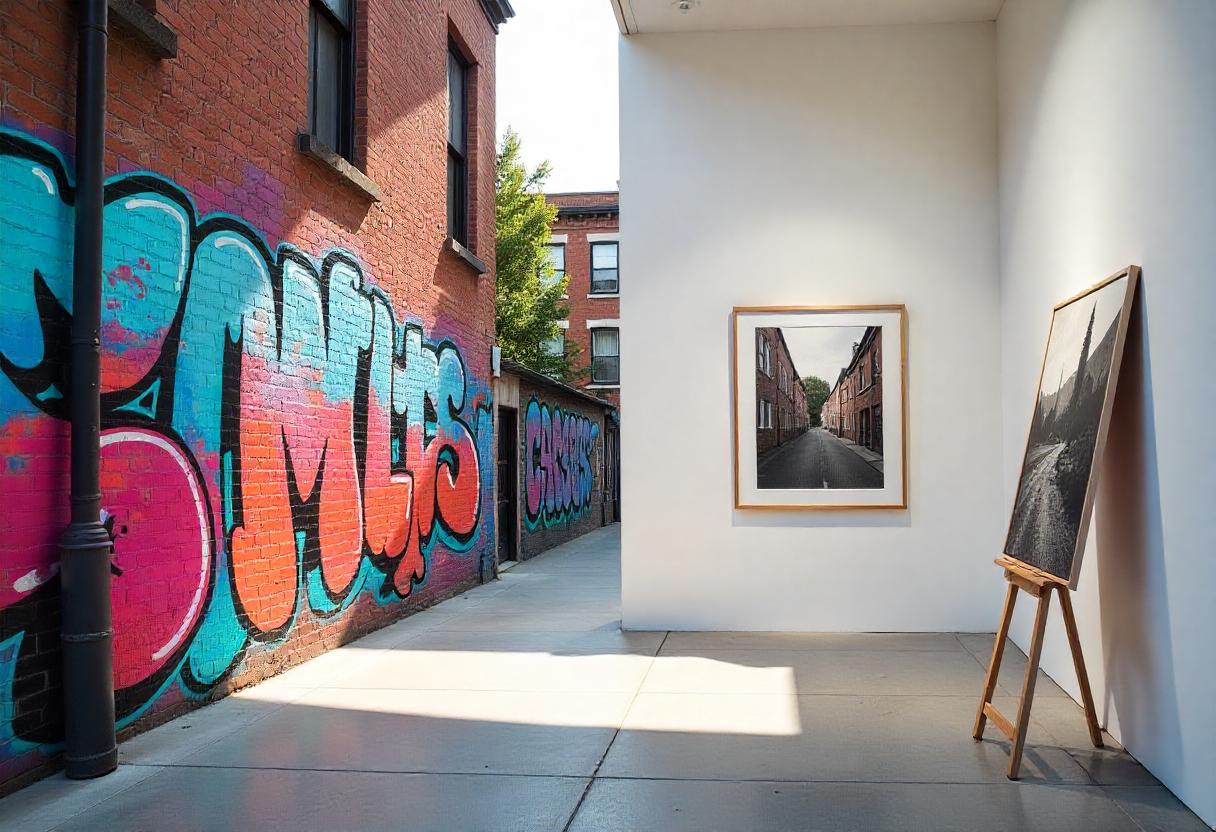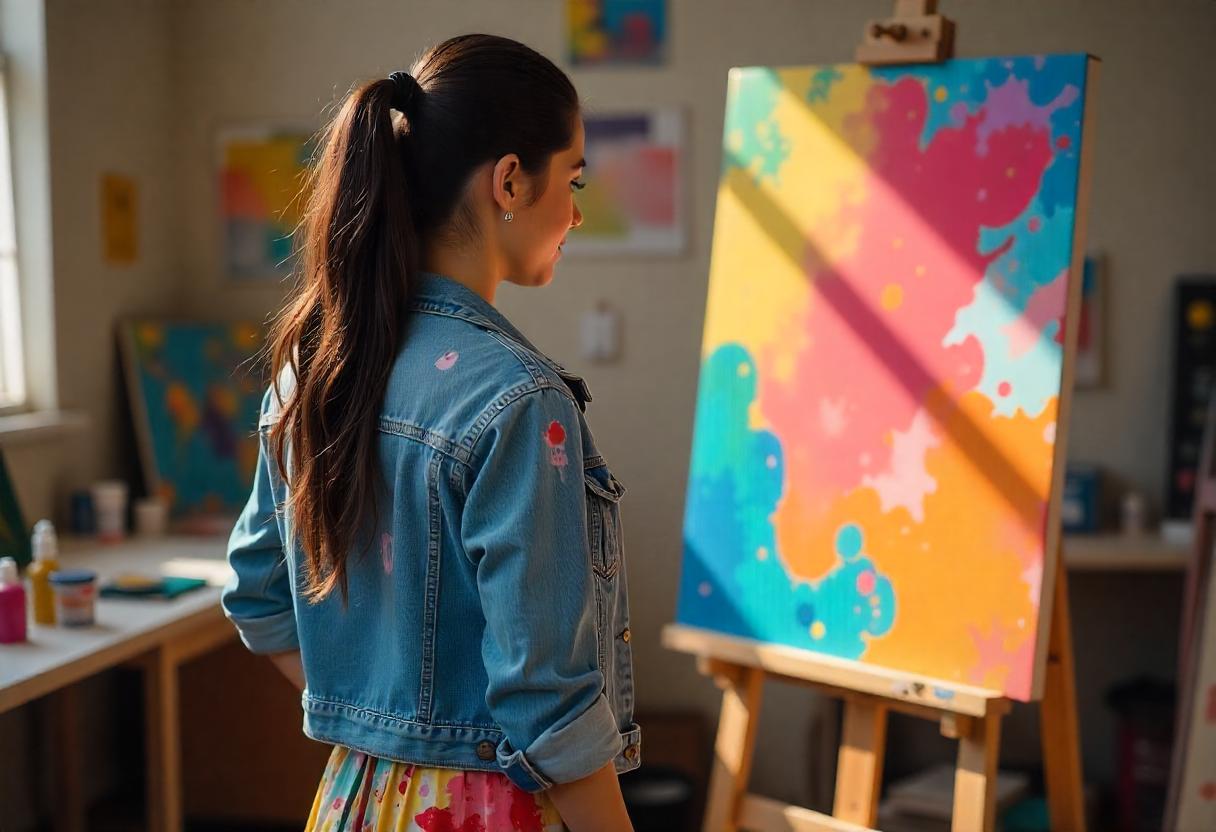Mastering Fine Arts: Start Your Journey with a BFA
If you love art and are looking for options to turn your passion into a successful career, a Bachelor of Fine Arts is a great place to start.
BFA courses are designed to enhance your knowledge and understanding of art history, the evolution of art, and the principles & fundamentals of different art forms. You will develop a deep understanding of color theory & compositions, and work with different mediums to create art. Usually spanning 3 to 5 years, these courses will teach you about different niches in fine arts – 3D modeling, Sculpting, digital art, & printmaking – and allow you to master critiquing and analysis.
A professional course is a passage to some of the industry’s most lucrative, fun, and well-paying jobs. From an educator, artist, and illustrator to unique professions like art restorer, curator, art therapist, and many more, you will explore the professional realm equipped with all the knowledge and skills required.
Read the whole article and decide which profession would suit you the best once you complete a BFA degree.
What is BFA?
A Bachelor of Fine Arts is an undergraduate degree that you can pursue once you have completed your schooling (10+2). It spans around 3 to 5 years and primarily deals with visual arts including painting, sculpting, digital art, and printmaking.
There are specialized BFA courses for performing arts like dance, music, and theater as well. You can opt for a program based on your skills and interest in some of the most reputed institutes in India.
Will a BFA Degree be Helpful in Career Advancement?
If you are planning to work in a creative field, you probably already know that a degree is not always mandatory. However, professional courses are great for accessing the necessary tools and resources that will kickstart your career.
You will work with fellow artists, meet experts, attend seminars & workshops, and build your professional network along the way. The collaborative environment and being around like-minded creative people are crucial to understanding, analyzing, and critiquing art, and learning the soft skills needed to navigate the industry.
The well-designed curricula focusing on projects, hands-on training, and industry experience will help you get acquainted with how the industry functions and create an impressive portfolio even before you transition to the professional world.
How to Enroll in a BFA Course?
If you have just finished your schooling or are appearing in your 12th exams this year, this is a good time to start looking into application processes in different fine arts colleges.
Read Also: Is a Fine Arts Career Right for You? Here’s How to Decide
- Qualifications you need – All you need is to complete your 10+2 with a minimum 50% aggregate score (or equivalent CGPA) from a recognized board.
- Entrance Exams – You can opt for national-level exams like CUET or AAFT-GEE and other independent tests conducted by various institutes. Some Institutes might have a Personal Interview as round 2 before the rank-based seat allocation.
Skills You Need to Pursue a Bachelor of Fine Arts
Like most creative disciplines, fine arts too is skill-focused. It emphasizes the need to excel in technical skills, creative drive, and analytical abilities to make informed decisions regarding understanding, creating, and critiquing art.
Here are 5 key skills you need to master fine arts and get a headstart in your career –
- Creative Problem-Solving
Artistic challenges in interpreting a brief, creating meaningful compositions, and aligning artworks with concepts require critical thinking and creative problem-solving. It is an integral part of the creation process and helps in seamless workflow and effective communication between the artist, client, and audience.
- Sketching Skills
One of the basic yet super important skills is sketching. From quick sketches for ideation to detailed sketches conveying your ideas – you must master this skill to get into a BFA program and excel in your career later.
- Visualization & Representation
Visualizing complex artworks and being able to represent them through different mediums makes an artist stand out. It is a means to communicate artistic ideas, resonate with the viewers, and craft stories and narratives that might be a little beyond words.
Read Also: Beyond the Lines: Exploring Creativity and Expression in Fine Arts
- Understanding and Analytical Skills
As a BFA student, you will be exploring different styles of art, looking at paintings and sculptures from different periods, and studying the interrelationship between culture, history, society, and art. Understanding art within & beyond context and against its sociocultural backdrop is crucial to the discipline. Analytical skills are necessary for interpreting & critically looking at art and reflecting on creating meaningful pieces yourself.
- Software Knowledge
With the integration of digital mediums, BFA is now a more diversified course. Keeping up with the industry trends means getting familiar with the popular software and mastering the digital tools. It is a great way to expand your skills, explore new mediums, and venture into digital art, animation, graphic design, and other related fields later in your career.
Curriculum Overview
Bachelor of Fine Arts focuses on developing and nurturing artistic minds through the perfect blend of theoretical and practical subjects. The curricula are well-structured and take into account the changing needs of the industry, trends, technological interventions, and viewer preferences.
Here are some of the subjects you will study. These are aimed at deepening the understanding of the discipline, refining the technical skills, and paving the path for a successful career ahead –
- Basic Sketching/Drawing
- Understanding Perspective and Creating Compositions
- History & Evolution of major Indian & western art forms
- Digital art – 2D and 3D
- Understanding different art styles and mediums
- Exploring niches in Fine Arts – Print-making, Sculpting, Ceramics, Digital Design
- Understanding the Basics of Photography
- Software Knowledge
- Portfolio development
Career Paths After BFA
Being a Creative field, BFA courses provide lots of opportunities to explore different art forms & styles and experiment with your creativity and visualization. You can land your dream job right after graduating from college or if you want to opt for a specialized role, after some additional certificate courses & training programs. Here are some unique, well-paid, and rewarding job options after BFA that would help you boost your career growth –
Read Also: Creative Education in the Digital Age: Challenges and Opportunities
- Art Restorer
As the title suggests, these are professionals who restore, repair, and preserve artworks. They study different art forms, mediums, and art restoration techniques to bring back life to historic pieces. As an Art restorer, you can work with organizations dealing with art & culture preservation, historic societies, galleries, and museums, or go solo and take on independent projects.
- Illustrator
If you love illustration, you can specialize and work as a professional illustrator. Your primary role would be to create visuals that effectively communicate an idea and resonate with the audience. You can explore different mediums, leverage the relevant software, and work with publication houses, magazines, advertising & marketing agencies, or as a freelancer.
- Art Therapist
Art therapists study Psychology and Fine Arts and emphasize the interrelation of the two disciplines. They use the medium of art to help people better their mental health and express themselves through different mediums. These are licensed professionals who specialize in assessing clients’ mental health by running tests and developing art-based treatment plans for them.
- Art Gallery Manager/Curator
To work as a curator, you will need a specialized degree and knowledge of art history and different mediums & materials. Curators oversee the collection, exhibition, and maintenance of different art pieces.
As an Art Gallery Manager, you will be responsible for ensuring the gallery runs smoothly and the daily operations go on without any hindrance. You will train and manage the staff, maintenance of the exhibits, finance, and marketing & promotions, and oversee any events in the gallery.
- Art Director
Art Directors work in films, TV, advertising, and publishing. They work alongside designers, photographers, DOPs, and writers to ensure the visual aesthetic and concept are aligned and in sync with what the viewers will resonate with.
Read Also: Why a Fine Arts Course is Essential for Aspiring Artists?
Tips for Success
While you can work across industries after a BFA, your growth depends on how much you are willing to upskill and how well you can refine your talents keeping up with what’s relevant. Here are some select tips by acclaimed artists & experts for a guaranteed rewarding career in the dynamic industry –
- Make a portfolio and make it diverse and unique. Ensure it speaks for you and provides your clients and recruiters with all the info they need to hire you.
- Start networking while pursuing your degree. You will visit galleries, attend exhibitions, work as an intern, and go to workshops & seminars. Make sure you leverage every opportunity you get and build professional relationships that would make your career even more lucrative.
- Upskilling is never a bad idea. Go for that certification and grab all the interesting opportunities you get.
- Select a niche that has high demand and increasing employment options.
- Explore and experiment with your craft. Don’t shy away from trying out unconventional mediums and optimize as many relevant software and tools as you can. This would diversify your work, help you master different styles, and expand your horizons even further.
- Create a personal brand through online presence, social media optimization, and embracing the newest digital tools.
Conclusion
For all the aspiring artists who are looking for a professional course to master the craft and start their careers, BFA can be the perfect program. Many reputed fine arts colleges across India offer a Bachelor of Fine Arts degree with curricula that are at par with the educational and industry standards.
Read Also: Why a Fine Arts Degree is More Than Just Painting Pictures
With a degree in fine arts, you can venture into various industries to work as an artist, art restorer, curator, gallery manager, art therapist, and much more. All you need is to build a network along the way & keep up with the changing scenario through upskilling, short-term courses, and lots of practice.
Start working on your creativity, sketching skills, visualization & representation, and get familiar with some of the key software to get ahead of the curve and crack the entrance tests after your 12th. Don’t forget to check out the courses and their syllabi before you finalize an institute. The AAFT School of Fine Arts has an extensive curriculum designed to deepen your knowledge and ensure a successful professional journey.











